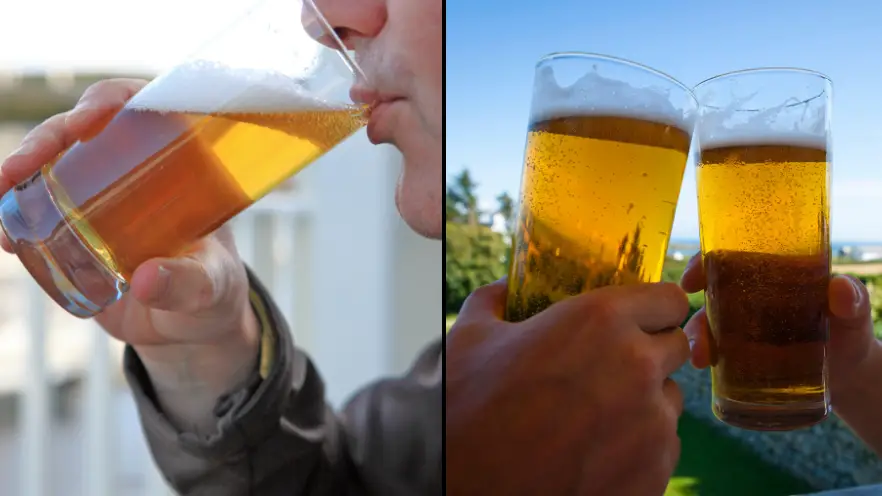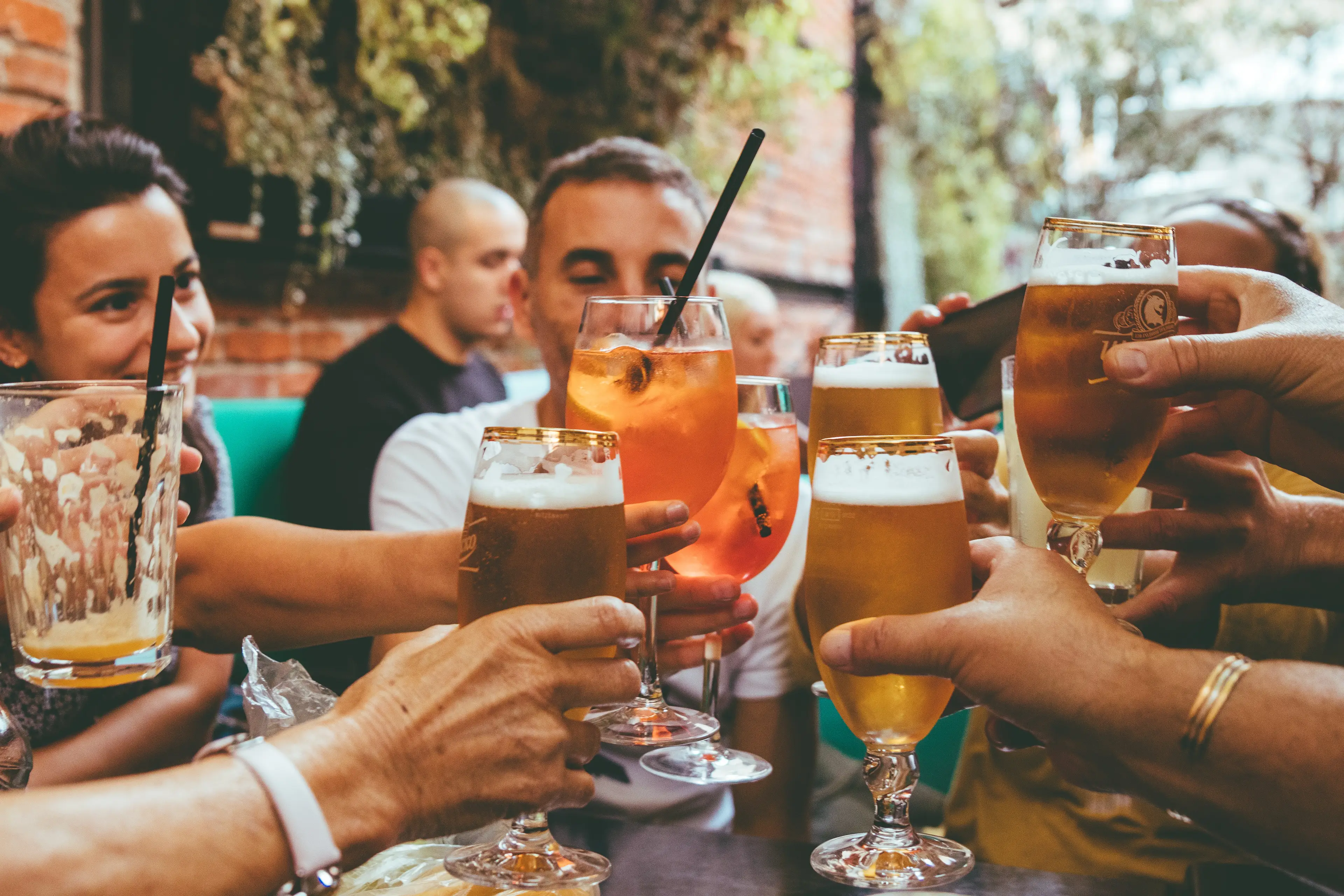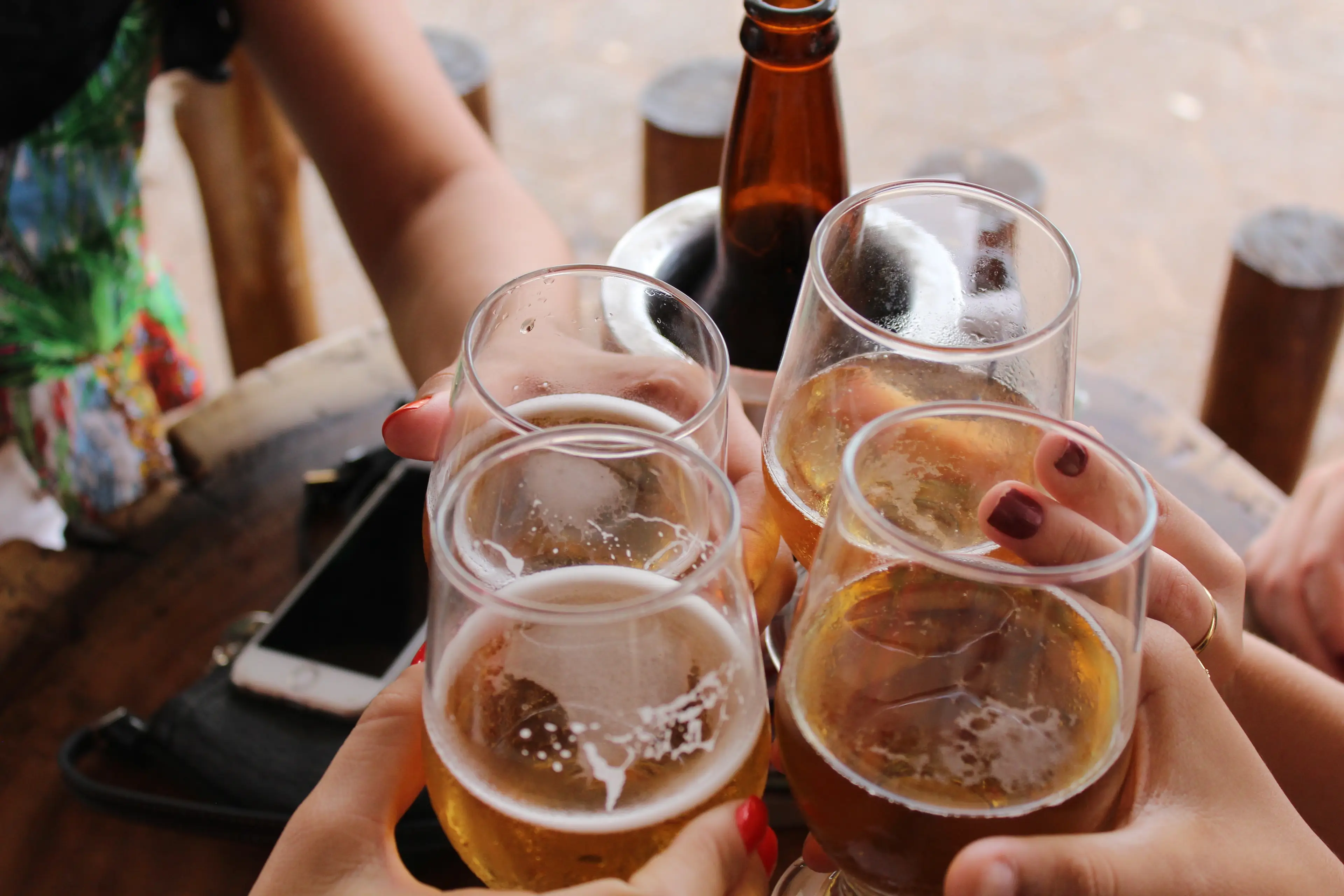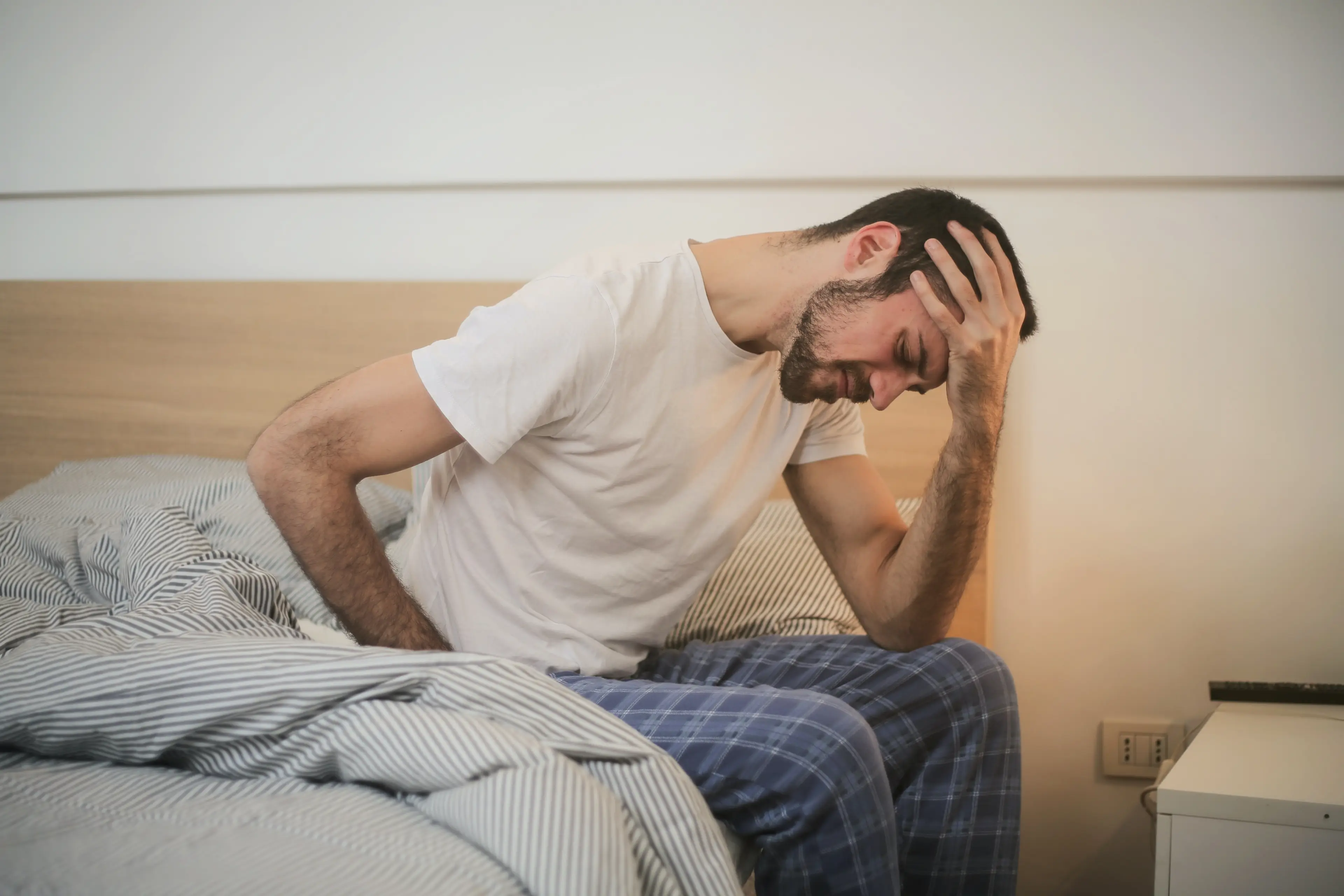
When the sun comes out, us Brits all seem to congregate in the nearest pub garden for a cold pint with friends.
But, apparently, drinking beer to cool down can actually backfire.

Drinking too much beer, or any alcohol, for that matter, can cause you to become dehydrated. This, in turn, can lead to confusion, lethargy, and problems with breathing and heart rate.
Advert
In fact, the symptoms of dehydration are strikingly similar to that of a hangover - so your sore head the morning after may actually be a sign of dehydration.
Another complication of attempting to rehydrate yourself in warm weather with alcohol is the possibility of heat stroke and exhaustion.
Dr Thornber, the chief medical officer at Now Patient, told the Metro that consuming alcohol can 'massively affect' your core body temperature, which can 'lead to heat stroke or exhaustion'.
And that summer sesh you have planned with your mates? It’s bound to cause havoc on your internal organs, including your brain, liver, stomach, colon and heart.

However, if you simply wait until the weather is a bit more tolerable, it’s less likely to have such a detrimental impact on your body.
The doctor told the publication that if you’re still set on going for a drink, wait until early evening when the sun begins to set.
Pub goers should absolutely avoid drinking between 12-3pm, when 'the sun is at its highest and hottest', and therefore provides more of a risk of dehydration, heat stroke and exhaustion.
If you want to prevent dehydration or a hangover, your best bet is to drink glasses of water or soft drinks between each pint, Dr Thornber recommended to the site.

He also recommends that drinkers should sit in a well-covered area away from the bright sun and 'drink at a steady pace'.
That also means that summer parties shouldn’t include drinking games, as well as preparing for a heavy sesh with a good meal beforehand.
The next morning, if you’re still feeling the effects of drinking, it could be because liquor affects everybody differently.
As alcohol is a diuretic, which means it encourages the kidneys to lose more fluid, Dr Thornber advised drinking lots of water and fresh juice the next day to rehydrate your body and replenish vitamins.
Elsewhere, a painkiller and antacid can settle your stomach, while eating a banana or kiwi can provide lost potassium, whilst rehydration treatment packets are a great way to replenish those lost minerals and salt.
Topics: Food And Drink, Health, Weather